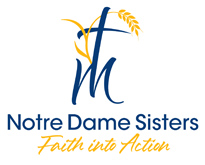Pilgrims of Hope: Embracing the Jubilee Year as a Journey of Hope
Pope Francis has declared 2025 a Jubilee Year, a Catholic tradition first observed in the Church in 1300 but having its roots in book of Leviticus in the Hebrew Bible. The Catholic version has traditionally emphasized pilgrimage, ceremony, and indulgences-more on indulgences another day. Unless one has a fondness for travel, ritual, rather cryptic faith practices, or history, one might be tempted to give this Jubilee a pass. But not so fast! A Jubilee Year might be just what we need—even the marginally faith-identified of us. The crucial characteristics of a Jubilee Year are stopping to take a breath and restoring just relationships for people and land. Who among us does not need that? This need is further focused by the theme that Pope Francis has given this Jubilee Year: Pilgrims of Hope.
Jubilee: According to the Book of Leviticus which describes the Law as it applied to the Hebrew people, a jubilee year was to be declared every 50 years. It was a time of forgiveness of debts and rest for the soil. People were to be restored to their ancestral lands if they had sold them. Anyone who had been sold into servitude over indebtedness was to be released. Denying them release was a case of oppression of the needy–a direct offense against God who had created them with dignity and who had freed the whole people from slavery in Egypt. The soil was to be left uncultivated to have its rest as well. The jubilee ideal acknowledged God’s ultimate protective ownership of land, animals, crops, and people and set God as the measure of justice. How does the concept of a Jubilee—rooted in forgiveness, restoration, and rest—resonate with your own life and journey?
Pilgrims: The expression “pilgrims” acknowledges that we are on the way somewhere and have not yet arrived. It reminds us that our lives are marked by transitions, challenges, and opportunities for transformation. Pilgrims are not perfect; they carry with them the weight of their human struggles including doubts, moments of hopelessness, and grief. Yet, they also possess hope and resilience, fueled by the belief that their common journey has purpose and meaning. What does it mean to you to walk as a “Pilgrim of Hope”?
Addressing a January 10th audience, Pope Francis commented on what it means to be a pilgrim, which includes “’walking together in the Church, but also having the courage to go out and meet others’ to bring hope by ‘offering the world a living word, rooted in the Gospel, a word that consoles and opens new paths.’”
Hope: Anytime we emphasize the need for hope, we are acknowledging its challenges as well. Why else do we need to bring it up? As we approach this Jubilee Year, how do we nurture hope in ourselves and others? What are the challenges to hope for us? Who feeds our hope? How do we draw on God’s nurturing desire for our renewal and the renewal of our earth? How do we enact that hope for our world?
Add your ideas in the comments or share them over coffee (or something stronger) with a friend.
Throughout this year we will continue to explore hope, reconciliation, and rest–all elements of our pilgrimage toward God’s dream for us: justice for all.
